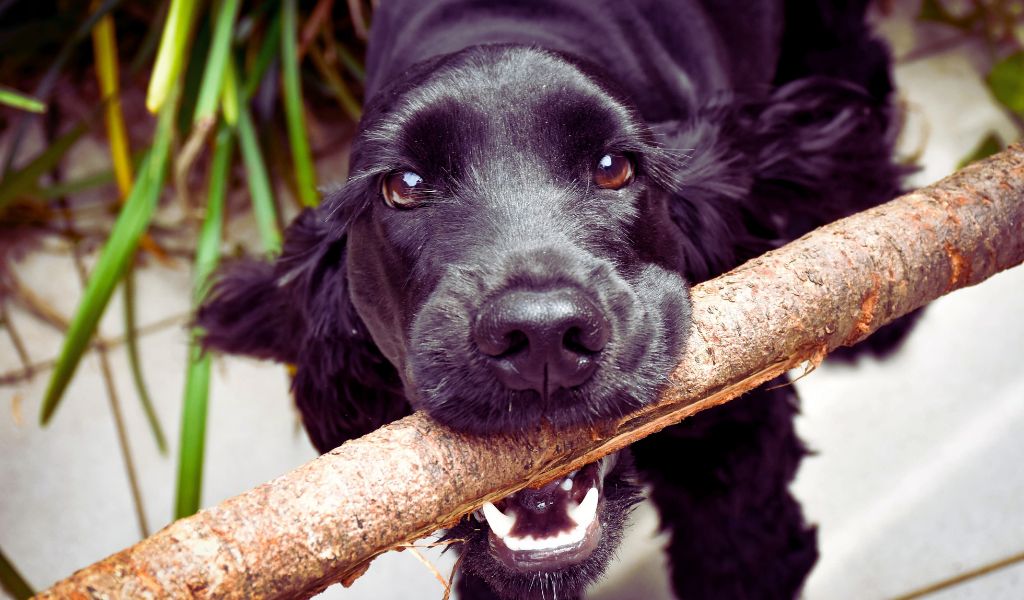Are you a proud owner of a Cocker spaniel puppy or planning to bring one into your home soon? If so, you’re in for a delightful and rewarding journey with your new furry friend.
Cocker spaniels are known for their playful nature and affectionate personalities, making them a popular choice among dog owners.
One activity that every Cocker spaniel owner knows is a must is playing fetch.
Cockers typically enjoy playing fetch. This breed possesses a natural instinct for retrieving, stemming from their history as hunting dogs. Playing fetch not only caters to this instinct but also provides them with the physical exercise and mental stimulation they need. It’s a fantastic way for Cocker spaniels to bond with their owners and stay active. However, individual preferences may vary, and some may prefer other forms of play or exercise.
The importance of fetch for Cocker spaniels
Fetch is a crucial activity for Cocker spaniels as it provides mental and physical stimulation.
Engaging in a game of fetch helps satisfy their natural urge to chase and retrieve objects, keeping them mentally and physically active.
Regular fetch sessions also provide an excellent way to strengthen the bond between the owner and the dog, as it requires the dog to trust and obey commands.
Additionally, fetch is a great way to help Cocker spaniels burn off excess energy, which can prevent behavioural issues such as excessive barking or destructive chewing.
Ensuring that Cocker spaniels have the opportunity to engage in fetch on a regular basis is important for their overall well-being, as it helps fulfill their natural instincts and keeps them physically and mentally healthy.
Getting started: Puppy training for fetch
Getting started with puppy training for fetch can be a fun and rewarding experience for both you and your Cocker.
To begin, it’s important to find a suitable location with plenty of space for your puppy to run and play.
Start by introducing the concept of fetch by using a toy or ball that your puppy is interested in. Encourage your puppy to show interest in the toy, and when they pick it up, offer plenty of praise and maybe even a small treat.
Gradually increase the distance you throw the toy, and continue to praise and reward your puppy for bringing it back. It’s important to keep training sessions short and fun, as puppies have short attention spans.
Consistency is key, so try to practice fetch regularly to reinforce the behaviour.
With patience and positive reinforcement, your puppy will soon understand the game of fetch and will be eager to play and learn with you.
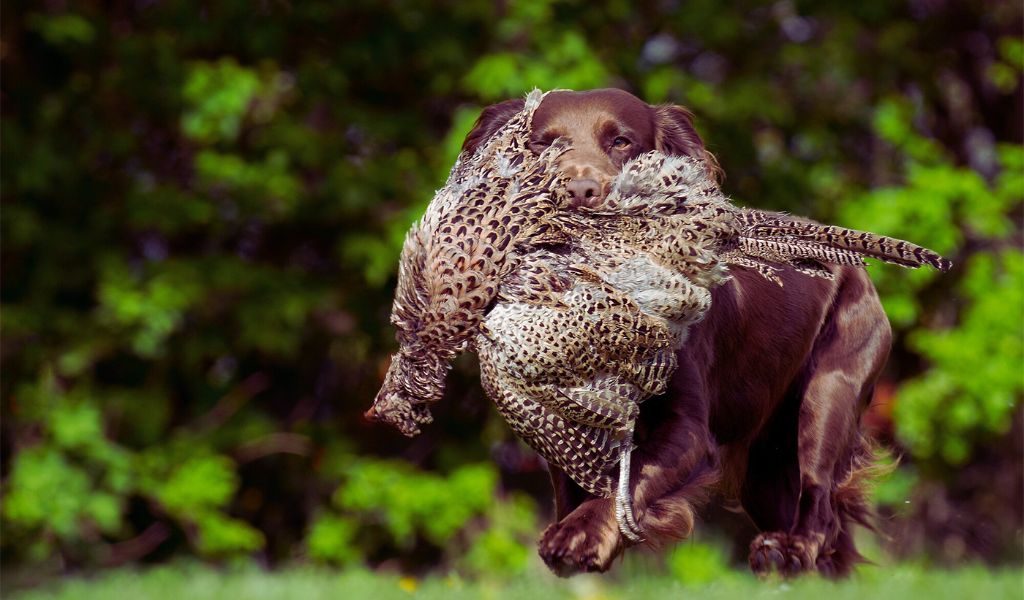
Mastering the fetch game: Tips and tricks
Mastering the fetch game is not just about throwing the ball and hoping for the best. There are tips and tricks that can help you and your dog take the game to the next level.
First, it’s important to use a ball or toy that your dog is really motivated to chase. This could be a squeaky ball or a favourite stuffed animal.
Also, be sure to establish a clear command for fetching, such as “go get it” or “fetch,” and consistently use the same command every time.
Additionally, reward your dog with praise and treats when they successfully bring the toy back to you. This positive reinforcement will help strengthen the behaviour.
Another tip is to vary the location and distance of your throws to keep the game interesting and engaging for your dog.
And finally, be patient and stay positive throughout the training process. With these tips and tricks, you and your furry friend can become experts at the fetch game in no time.
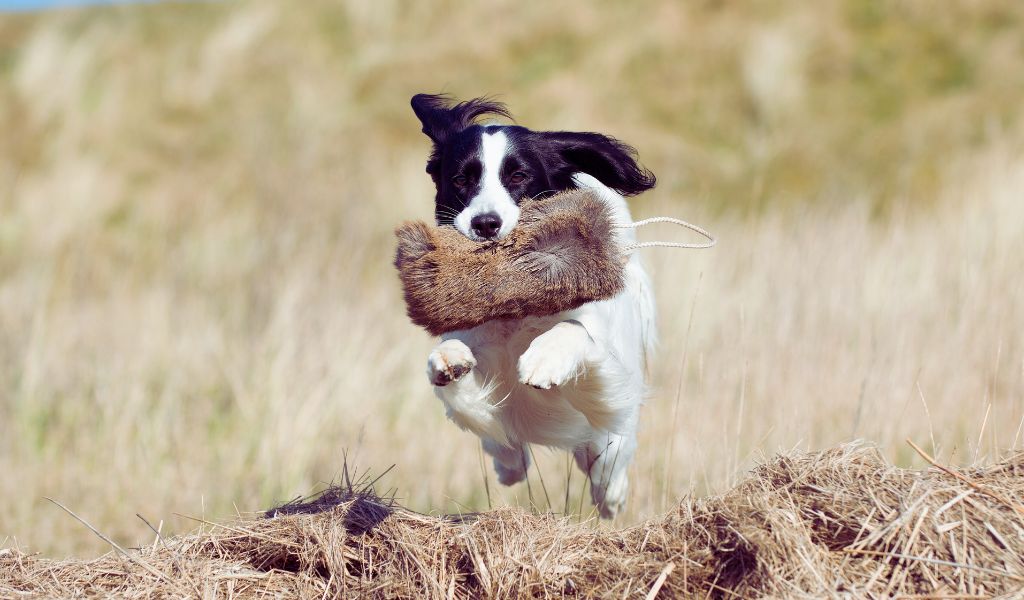
Advanced fetch techniques for working Cocker spaniels
Advanced fetch techniques for working Cocker spaniels are essential for ensuring the dogs are not only physically fit but also mentally stimulated.
One advanced technique is teaching the dog to fetch specific items by name, such as “ball” or “frisbee”. This helps to improve the dog’s cognitive abilities and strengthens the bond between owner and pet.
Another technique is teaching the dog to retrieve items from water, which is particularly useful for working Cocker spaniels who may be used for hunting or retrieving game.
Advanced fetch techniques also involve teaching the dog to wait until given a command before fetching the item, as well as dropping the item on command.
This level of training can transform a working cocker spaniel into a highly skilled and obedient companion.
Consistent practice, positive reinforcement, and patience are key to successfully mastering these advanced fetch techniques.
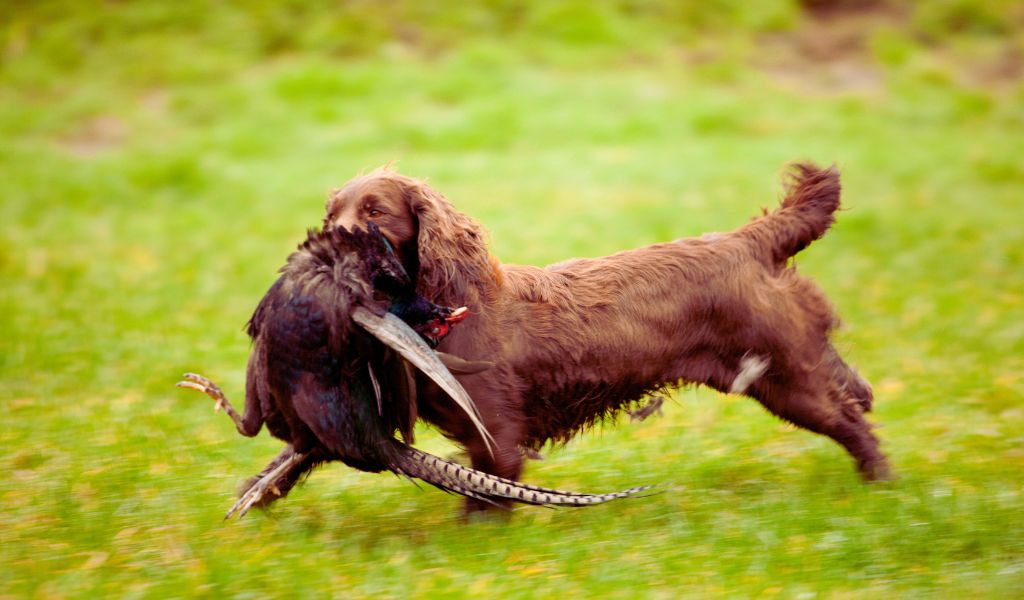
Cocker spaniel’s natural instinct and fetch
Cocker spaniels are known for their natural instinct to retrieve, which makes them excellent fetch companions. This instinct can be traced back to their origins as hunting dogs, where they were trained to retrieve game for their owners.
Even though they may not be used for hunting purposes, this natural behaviour still shines through in their love for playing fetch.
Their enthusiasm and drive to chase after a thrown ball or toy are unmatched, making them great playmates for active individuals or families.
It is important to note that their instinct to retrieve can be both a strength and a challenge, as they may become overly excited or possessive of the object being fetched.
Proper training and socialisation can help harness this natural instinct in a positive way, ensuring that fetch remains a fun and enjoyable activity for both the dog and their human companions.
Positive reinforcement in fetch training
When a dog successfully retrieves an object and brings it back to their owner, using positive reinforcement such as treats, praise, or playtime, can help solidify the desired behaviour.
Dogs are naturally responsive to rewards, and using positive reinforcement can make the training process more enjoyable for both the dog and their owner.
By rewarding the dog for their actions, they are more likely to repeat the behaviour in the future. This creates a positive association with the act of fetching and reinforces the dog’s understanding.
Additionally, positive reinforcement helps build a strong bond between the dog and their owner, as it fosters a sense of trust and cooperation.
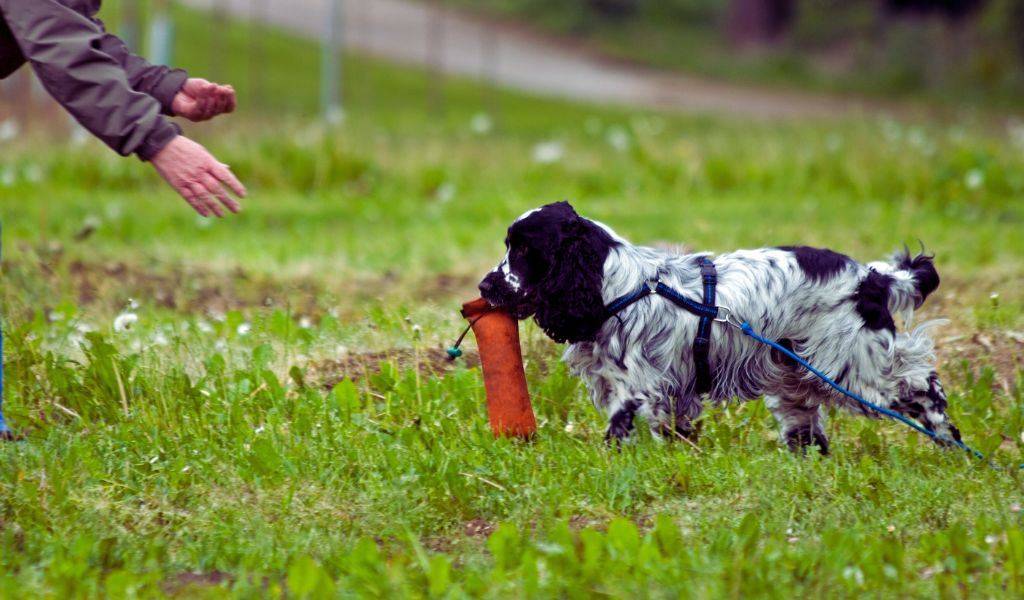
Common challenges in fetch training
One of the common challenges in fetch training is getting the dog to actually bring the item back to the owner.
Some dogs love to chase after a ball or toy, but then lose interest in bringing it back. This can be frustrating for the owner, especially if they want to play a game of fetch for exercise or bonding time with their pet.
Another challenge is teaching the dog to release the item once they have brought it back. Some dogs have a natural tendency to want to keep the object for themselves, leading to a tug-of-war situation.
Additionally, some dogs may have difficulty understanding the concept of fetching and may need additional patience and training to grasp the idea. It’s also common for dogs to become easily distracted during fetch training, especially in outdoor environments where there are other animals, scents, or noises competing for their attention.
Overcoming these challenges often requires consistent and patient training, as well as using positive reinforcement techniques.
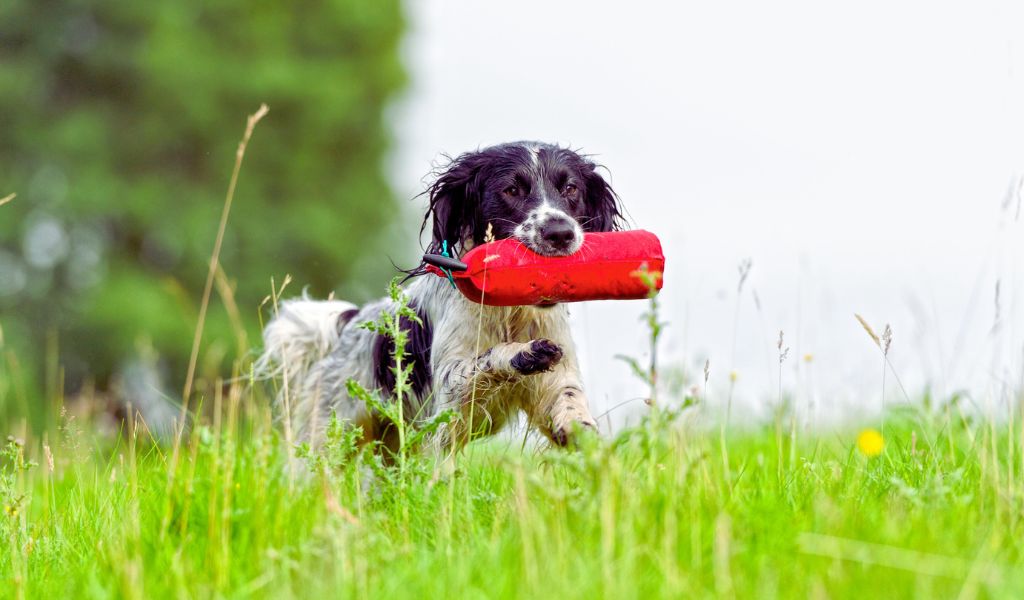
FAQs
Do Cocker spaniels naturally like to play fetch?
Cocker spaniels are a breed known for their high energy and playful nature. Many Cockers love playing fetch due to their innate retrieving instincts, making it an enjoyable activity for them.
How can I teach my Cocker spaniel to play fetch?
When teaching your Cocker spaniel to play fetch, use positive reinforcement such as treats and praise. Start by encouraging your puppy to retrieve a favourite toy and gradually introduce the concept of bringing it back to you.
Are Cocker spaniels good at playing fetch from a young age?
Cocker spaniels, particularly puppies, may exhibit a natural prey drive and love playing fetch as early as when they start their training sessions. However, consistency and patience are key when introducing the fetch game to your dog.
Can playing fetch help in training my Cocker spaniel?
Introducing fetch during your puppy training sessions can serve as a form of mental stimulation and a positive reinforcement tool. It can also help in strengthening the bond between you and your cocker spaniel.
What are some tips for playing fetch with a Cocker Spaniel?
When playing fetch with your Cocker, make sure to use a favourite toy that encourages retrieval. Incorporating short breaks and changing up the direction of throws can keep the game engaging for your dog.
Remembering the essentials: A summary
Cocker spaniels love to play fetch due to their natural instincts.
Start fetch training early and use positive reinforcement.
Be patient and consistent during training sessions.
Consider advanced techniques for working Cocker spaniels.
Explore other mental stimulation games.
Understand and address common challenges.
Use fetch as an opportunity to strengthen your bond with your pup.
In conclusion, playing fetch with your Cocker spaniel can be a rewarding and enjoyable experience for both you and your dog.
Remember to be patient, use positive reinforcement, and have fun while training your puppy.
With dedication and love, your Cocker spaniel will become a fetch champion in no time, and you’ll create lasting memories together. So, go ahead, grab a tennis ball, and let the fetch games begin!

